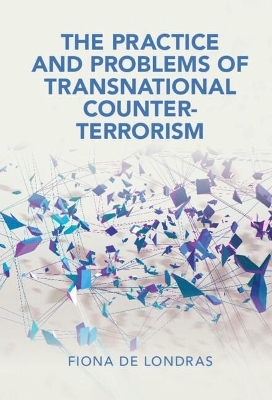
The Practice and Problems of Transnational Counter-Terrorism
Seiten
2022
Cambridge University Press (Verlag)
978-1-107-02273-7 (ISBN)
Cambridge University Press (Verlag)
978-1-107-02273-7 (ISBN)
In spite of its significant effects on everyday life, the effects of transnational counter-terrorism are not well understood. Drawing on insights from law, international relations, political science and security studies, this study shows the impacts and argues that counter-terrorism is expansionary, rights-limiting and unaccountable.
The attacks of 9/11 kickstarted the development of a pervasive and durable transnational counter-terrorism order. This has evolved into a vast institutional architecture with direct effects on domestic law around the world and a number of impacts on everyday life that are often poorly understood. States found, fund and lead institutions inside and outside the United Nations that develop and consolidate transnational counter-terrorism through hard and soft law, strategies, capacity building and counter-terrorism 'products'. These institutions and laws underpin the expansion of counter-terrorism, so that new fields of activity get drawn into it, and others are securitised through their reframing as counter-terrorism and 'preventing and countering extremism'. Drawing on insights from law, international relations, political science and security studies, this book demonstrates the international, regional, national and personal impacts of this institutional and legal order. Fiona de Londras demonstrates that it is expansionary, rights-limiting and unaccountable.
The attacks of 9/11 kickstarted the development of a pervasive and durable transnational counter-terrorism order. This has evolved into a vast institutional architecture with direct effects on domestic law around the world and a number of impacts on everyday life that are often poorly understood. States found, fund and lead institutions inside and outside the United Nations that develop and consolidate transnational counter-terrorism through hard and soft law, strategies, capacity building and counter-terrorism 'products'. These institutions and laws underpin the expansion of counter-terrorism, so that new fields of activity get drawn into it, and others are securitised through their reframing as counter-terrorism and 'preventing and countering extremism'. Drawing on insights from law, international relations, political science and security studies, this book demonstrates the international, regional, national and personal impacts of this institutional and legal order. Fiona de Londras demonstrates that it is expansionary, rights-limiting and unaccountable.
Fiona de Londras is Professor of Global Legal Studies in the Birmingham Law School, University of Birmingham and Honorary Professor in the College of Law, Australian National University. She is the author of Detention in the 'War on Terrorism' (Cambridge, 2011) and was awarded the Philip Leverhulme Prize in 2017.
Introduction; 1. The institutions of transnational counter-terrorism; 2. The law of transnational counter-terrorism; 3. Ever-expanding transnational counter-terrorism; 4. Transnational counter-terrorism in the domestic sphere; 5. Accountability; Conclusion.
| Erscheinungsdatum | 14.02.2022 |
|---|---|
| Reihe/Serie | Cambridge Studies in Law and Society |
| Zusatzinfo | Worked examples or Exercises |
| Verlagsort | Cambridge |
| Sprache | englisch |
| Maße | 158 x 235 mm |
| Gewicht | 490 g |
| Themenwelt | Recht / Steuern ► EU / Internationales Recht |
| Recht / Steuern ► Öffentliches Recht ► Völkerrecht | |
| Sozialwissenschaften ► Politik / Verwaltung | |
| ISBN-10 | 1-107-02273-8 / 1107022738 |
| ISBN-13 | 978-1-107-02273-7 / 9781107022737 |
| Zustand | Neuware |
| Haben Sie eine Frage zum Produkt? |
Mehr entdecken
aus dem Bereich
aus dem Bereich


